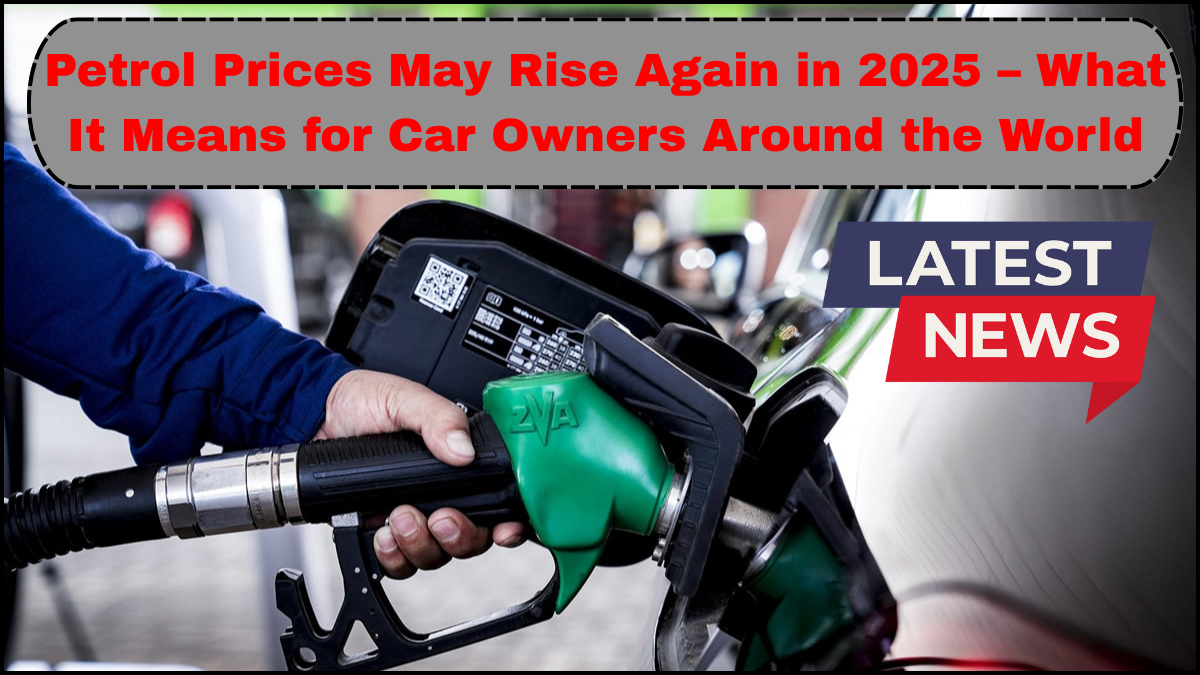The global petrol price forecast for 2025 suggests another significant increase, sparking concerns among car owners and transport-dependent industries. As international oil dynamics shift and economic pressures mount, fuel costs are set to become a heavier burden for everyday consumers. Here’s a breakdown of what’s causing the projected rise and how it could impact your wallet and driving habits.

What’s Driving the Predicted Increase in Petrol Prices?
Several interconnected factors are influencing the anticipated rise in petrol prices for 2025:
- Geopolitical Instability: Ongoing conflicts in oil-producing regions, such as the Middle East and parts of Africa, disrupt supply chains and cause uncertainty in the oil markets. When production drops or trade routes are threatened, crude oil prices spike.
- OPEC+ Production Strategies: The Organization of the Petroleum Exporting Countries and its allies (OPEC+) continue to play a pivotal role in regulating supply. Any agreement to cut production to stabilize prices can lead to higher fuel costs globally.
- Post-Pandemic Recovery: As global economies rebound from the pandemic’s long-term effects, demand for fuel is returning with force. This surging demand, especially from developing economies, is outpacing supply in some regions.
- Energy Transition Policies: With more governments enforcing stricter environmental regulations and incentivizing renewable energy, oil companies are investing less in exploration and infrastructure. While beneficial in the long term, this transition is creating short-term supply constraints.
Regional Breakdown: Who Will Be Hit Hardest?
The impact of rising petrol prices won’t be evenly distributed:
- United States: With its heavy reliance on private vehicles, even minor changes in fuel prices can have outsized effects on household budgets.
- Europe: While higher fuel taxes are already the norm, countries with robust public transport systems may fare better in adapting to the increase.
- Asia and Africa: In rapidly urbanizing regions, where car ownership is rising and public transport infrastructure is often underdeveloped, a fuel price spike can strain economic mobility and inflation.
Fuel Cost Trend: A Continuing Climb
Historical data shows that fuel cost trends have been upward over the past decade, interrupted only by short-term global events like the 2020 pandemic. Analysts project that 2025 may mark the continuation of this climb, driven by limited oil exploration, geopolitical frictions, and increasing consumption.
If the current projections hold, petrol prices could reach or exceed their previous highs from the early 2010s. Some forecasts estimate average global prices could rise by 10-15% compared to 2024 levels.
Impact on Vehicle Usage and Ownership
The impact on vehicle usage could be profound, particularly in nations with little price control or government subsidy. Here are a few likely scenarios:
- Increased EV Adoption: Higher petrol prices may push more consumers toward electric vehicles (EVs), especially in countries with supportive infrastructure.
- Carpooling and Shared Mobility: More people might opt for ridesharing, carpooling, or public transport to cut down on fuel expenses.
- Reduced Travel and Tourism: With travel costs increasing, road trips and domestic travel could take a hit, affecting sectors like hospitality and local tourism.
- Fleet Optimization: Businesses dependent on transportation may invest in more fuel-efficient fleets or adopt hybrid logistics models to manage rising costs.
How to Prepare as a Car Owner
Preparation can ease the sting of higher petrol prices. Here’s how to stay ahead:
- Maintain Your Vehicle: Regular servicing improves fuel efficiency and extends engine life.
- Drive Smart: Avoid aggressive driving, use cruise control when possible, and minimize idling.
- Consider Alternatives: Explore switching to hybrids or EVs if feasible, or adjust commuting habits to include biking or public transport.
- Track Prices: Use mobile apps to locate the cheapest petrol stations in your area.
FAQs
Q1: Why are petrol prices expected to rise in 2025?
A: Rising global demand, reduced investment in oil exploration, geopolitical tensions, and OPEC+ supply strategies are the main drivers behind the forecasted increase.
Q2: How will rising petrol prices affect daily commuters?
A: Commuters may face higher transportation costs, potentially leading to changes in travel behavior, such as increased carpooling or shifting to public transit.
Q3: Will electric vehicles become more popular if fuel prices rise?
A: Yes, higher fuel costs often make EVs more appealing, especially in regions with charging infrastructure and purchase incentives.
Q4: Is this price hike expected to be permanent?
A: While prices fluctuate, the current global petrol price forecast for 2025 suggests a sustained increase unless there are major changes in supply or geopolitical conditions.
Q5: How can I reduce my fuel expenses?
A: By maintaining your vehicle, driving efficiently, using fuel comparison tools, and considering alternative transportation methods.
click here to learn more